'Witchcraft' abuse cases on the rise
- Published
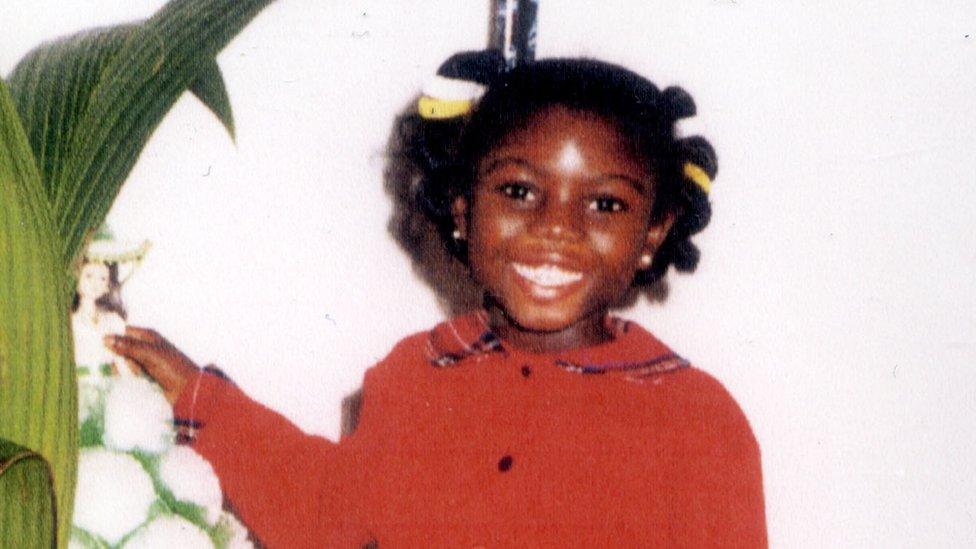
The death of Victoria Climbie in 2000 as a result of abuse linked to witchcraft led to an overhaul in child protection
Child abuse linked to exorcism and witchcraft accusations is on the rise, figures obtained by the BBC suggest.
The Metropolitan Police said there had been 60 crimes linked to faith in London so far this year. It saw reports double from 23 in 2013 to 46 in 2014.
Half of UK police forces do not record such cases and many local authorities are also unable to provide figures.
The NSPCC said authorities "need to ensure they are able to spot the signs of this particular brand of abuse".
London is unique in having a police team, Project Violet, external, dedicated to this type of abuse.
Its figures relate to crime reports where officers have flagged a case as involving abuse linked to faith or belief. Many of the cases involve children.

Ibidapo's story: 'I felt like a nobody'
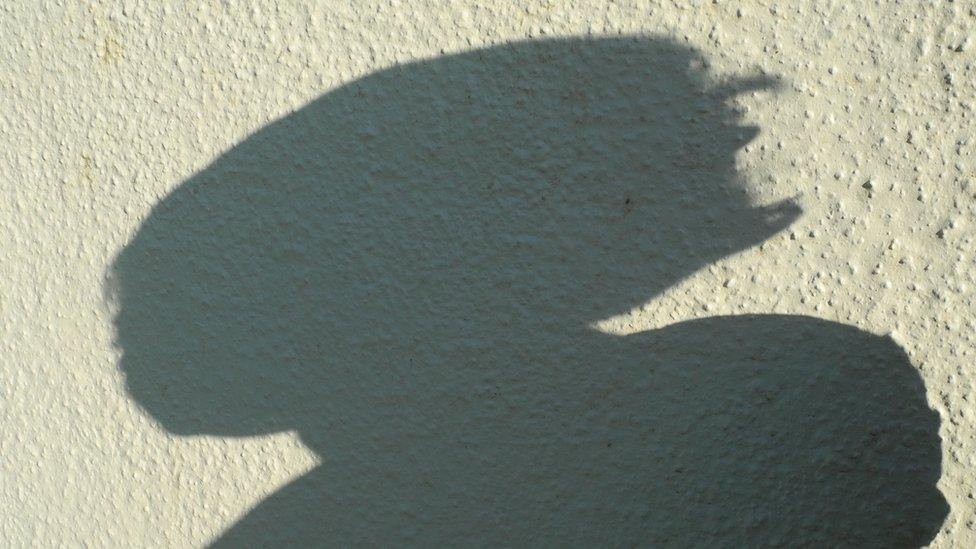
Ibidapo was trafficked to the UK from Nigeria in 2007, to work as a servant for relatives in the North of England. They accused her of being a witch, stopped her going to school and physically assaulted her. She escaped with the help of a Nigerian woman living nearby.
"I started living with my aunty at the age of 10, to help her to look after the baby. If my aunty went to work I'd be left with the baby, to do all the housework, wash clothes, cook the food.
"Each time the children got sick my aunty would accuse me of being the one responsible for their illness, start calling me a witch, start beating me up, and there was a time that she took me down to church, to a pastor. They were calling me a witch, they were using a broom to beat me.
"Sometimes my aunty would look into my eyes and call me a witch. It made me feel rejected, like I'm nobody."

Figures obtained by the BBC under a Freedom of Information (FoI) request reveal that half of UK police forces do not routinely record cases.
Only two forces other than the Met have reported incidents over the last three years: Greater Manchester and Northamptonshire each had one case.
A separate FoI request to local councils across the UK revealed 31 cases where a child had been accused of witchcraft or possession by spirits in 2014 - 30 in England and one in Wales.
This compares with 21 cases in 2013 and 10 in 2012. However 88 councils, 40% of those that responded, were unable to provide figures.
'Thrown out of home'
This is despite a 2006 recommendation in a government-commissioned report, external that cases of child abuse linked to accusations of "possession" and "witchcraft" should be recorded centrally.
Terry Sharpe, from the Project Violet team, said cases remained small in number, but there had been a significant increase, covering a spectrum of seriousness.
"You'll get the actual physical abuse and injuries taking place, and, in the worst-case scenario, we've had some homicides as well," he said.
"We've had a case within the last year where a nine-year-old boy had been called a devil child and thrown out of his address by his parents and was found by social services standing in his bare feet."
In another case a child was attacked by his mother, who bit him on the face and tried to smother him, because she believed he was a "witch possessed by evil spirits".
Debbie Ariyo, founder of Africans Unite Against Child Abuse, said accusations were often made when families experienced problems: "Children are blamed - especially stepchildren."
She added that within churches there was often a financial motivation behind accusations.
"The pastor says there's a witch in this church today; looks around and points to a child.
"That means public humiliation for the family. The next step is exorcism which is not done for free. It's a money-making scam."
'Lack of awareness'
She warned against viewing the issue as solely affecting the African community, as her organisation has supported victims from other faiths and cultural backgrounds, including the South Asian community.
She is concerned about the lack of awareness among childcare professionals in the UK.
"We did a training event in July for social workers, teachers, and lawyers. Most of them didn't know anything about witchcraft and juju but they had dealt with [such] cases," Ms Ariyo said.
"It is very important to know the background, so that if a child comes to school on Monday and says 'the pastor called me a witch', they treat it as a safeguarding issue and don't dismiss it."
'Horrifying cruelty'
An NSPCC spokesman said: "While the number of child abuse cases involving witchcraft is relatively small, they often include horrifying levels of cruelty.
"The authorities which deal with these dreadful crimes need to ensure they are able to spot the signs of this particular brand of abuse and take action to protect children before a tragedy occurs."
The government said its statutory guidance made it clear that anyone who had concerns about a child's welfare "should report this to children's social care or the police.
5 Live Investigates is on BBC Radio 5 Live on Sunday 11 October. Listen online or download the programme podcast.
- Published8 October 2014
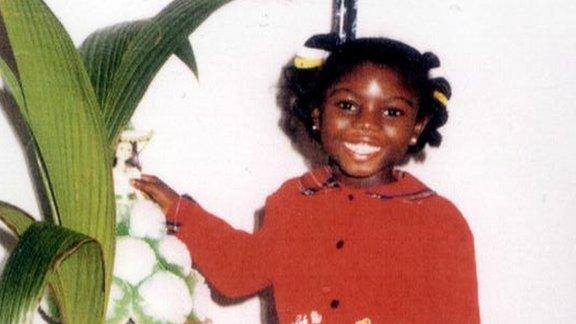
- Published5 March 2012
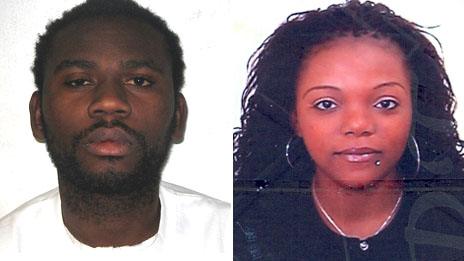
- Published1 March 2012
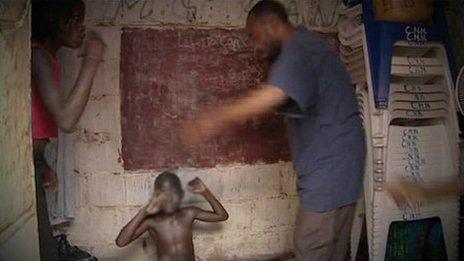
- Published2 March 2012
